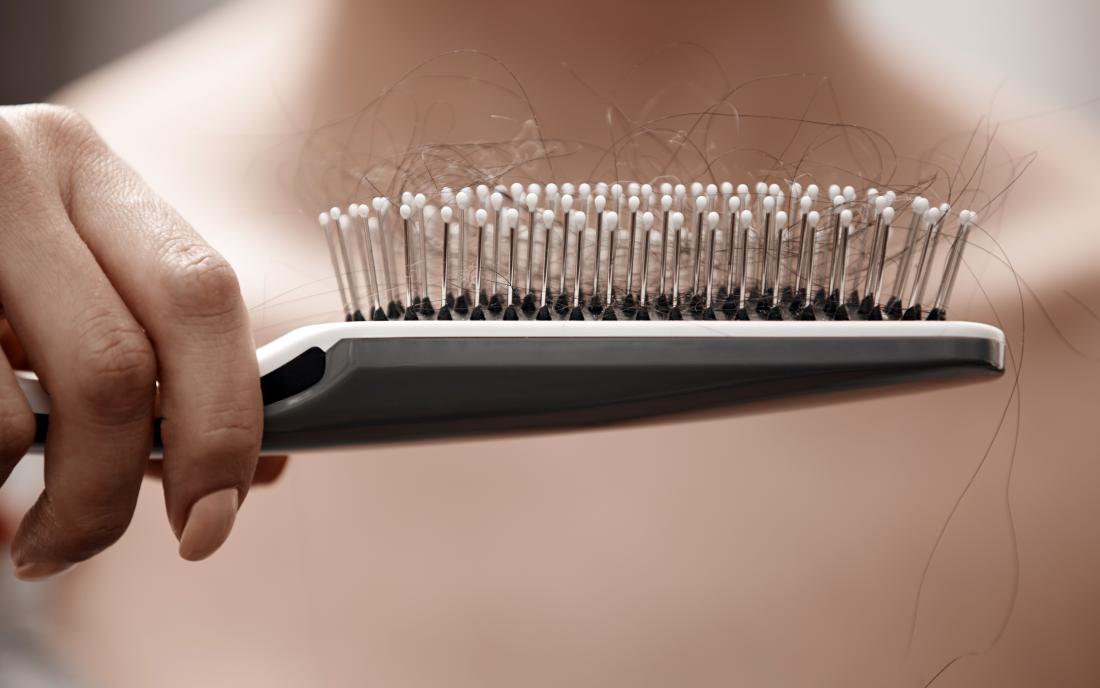For many women, hair loss can be a difficult and distressing experience. It can have profound psychological implications and challenge what is typically seen as traditional beauty standards.
This article will explore the unique causes of hair loss in women, as well as discuss potential solutions to this condition. We will look at both medical treatments, such as hormonal therapies and scalp stimulation techniques, but also natural remedies including lifestyle changes that could help restore fullness to your locks.
Join us on this journey of exploration into the world of female hair loss!
Introduction
The introduction of this article explores the unique causes and solutions for hair loss in women. It is an issue that affects many individuals, regardless of age or gender, but can be especially concerning for women who often experience more pronounced effects than men.
This article dives deep into the various reasons why female hair loss occurs as well as potential treatments to help resolve it. As we take a closer look at female hair loss, it’s important to understand how different factors such as genetics and environmental influences contribute to its development so that appropriate treatment plans may be tailored accordingly.
We will also discuss the latest developments in medical technology and other alternative therapies which offer promising results when dealing with this condition. By understanding and addressing all aspects of female hair loss, we can ensure it does not become a problem that continues to affect women around the world unnecessarily.
Causes of Hair Loss in Women

Hair loss is an issue that affects many women, regardless of their age or lifestyle. While some causes are universal, such as genetics and aging, other factors can uniquely impact a woman’s hair health.
From hormonal changes to underlying medical conditions and more, there are a variety of unique elements that can lead to female pattern baldness or thinning hair. Common potential causes include:
- Hormonal Imbalances – Fluctuations in hormone levels due to menopause, pregnancy or thyroid disorders can cause temporary hair shedding and even permanent bald patches in extreme cases.
- Stress & Anxiety – High-stress levels caused by physical or emotional trauma may trigger the body’s fight-or-flight response leading to sudden excessive shedding of locks over time if not addressed properly.
- Medication Side Effects – Certain medications used for treating depression, high blood pressure, and diabetes will often result in increased hair fall due to their chemical composition interfering with normal bodily functions like vitamin absorption, etc..
- Diet Deficiencies – A lack of essential nutrients such as iron, protein or zinc (most commonly found in foods like red meat) has been linked with temporary bouts of alopecia which could be resolved if dietary habits change accordingly over time.
- Medical Conditions – Underlying medical conditions like lupus, scalp infections/inflammation (dandruff), and ringworm infection on the scalp all have the potential for causing permanent damage to follicles resulting in long-term thinning/balding issues down the line if left untreated
Solutions for Hair Loss in Women

Hair loss in women is a sensitive and often embarrassing topic, but it’s important to understand the unique causes behind this common issue. Hair loss in women can be caused by a variety of factors such as hormonal imbalances, stress, nutrient deficiencies, chemotherapy treatments, or certain medications.
Fortunately, some solutions can help reduce the effects of hair loss for those affected. For nutritional issues related to hair loss in women, dietary supplements like biotin and other vitamins may provide some benefits if taken regularly.
Additionally, introducing more protein into one’s diet through lean meats or dairy products could also help restore healthier hair growth patterns. If stress is causing the thinning of hair strands then managing stress levels through exercise and relaxation techniques like yoga or meditation may bring relief over time.
Lastly, hormone-related problems with balding can sometimes be addressed with topical treatment options such as minoxidil which increases blood flow to the scalp resulting in improved follicle health and enhanced thickness of existing hairs on the head. The causes behind female pattern baldness vary greatly from person to person so it’s important for anyone experiencing unusual amounts of shedding or thinning to consult their physician before attempting any self-treatment plans at home.
By understanding how lifestyle choices might affect one’s overall health – not just their locks – they may be able to take preventative steps against further declining hairlines while finding ways to address underlying issues early on when possible
Conclusion
Hair loss in women is a common issue that many face and it can be quite distressing. Fortunately, by understanding the unique causes and solutions of hair loss in women, affected individuals can better manage their condition.
Whether it is due to stress or hormonal imbalances, there are treatments available that may help restore hair growth or minimize its effects. Additionally, lifestyle changes such as reducing stress levels or improving nutrition can play an important role in managing this condition.
Ultimately, with the right guidance and support from health professionals, hair loss in women does not have to mean permanent baldness.


